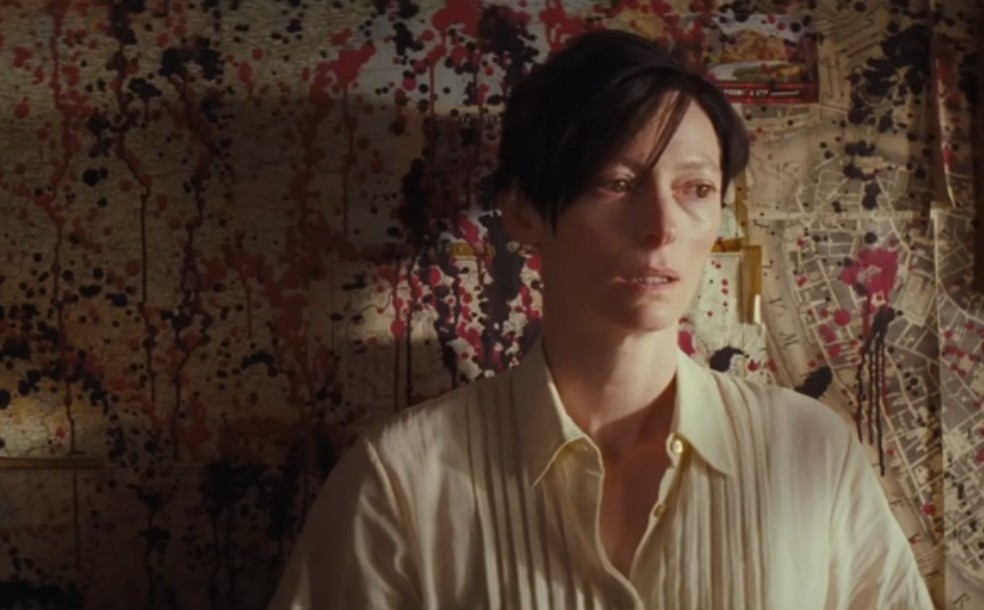Culture
A mother’s love, to extremes

We Need To Talk About Kevin
dir. Lynne Ramsay
Release Date: Jan 27, 12
- 1
- 2
- 3
- 4
- 5
- 6
- 7
- 8
- 9
- 10
Some movies you need to be prepared to see. Before I caught We Need to Talk About Kevin, I got incredibly lost on the way to the theatre. When I asked for directions in a café, the barista asked me what film I planned on seeing. I told her, and she almost jumped from behind her counter to recommend it to me. However, I asked her, as someone who deals poorly with films of a heavier subject matter: “But it’s pretty depressing, right?” She assured me that it wasn’t at all, and the ten million Cannes reviews that had told me such a thing were all false. After the film ended, I wanted to find her and hurt her. I could barely move. Attempting to will the tear ducts in my eyes to close, I struggled to stand, hoping not to reenact the Great Million Dollar Baby incident of 2004, where the remains of my weeping corpse had to be removed from the theatre.
I am here to tell to breathlessly inform you that We Need to Talk About Kevin is a masterpiece, as well as Tilda Swinton’s finest work, but I beseech you: bring a helmet into the theatre with you. It packs a wallop.
Although Gus Van Sant’s Elephant took a detached look at a Columbine-like shooting, Lynne Ramsay’s film intimately focuses not on the violence itself but that behind it. At the forefront of the film, Ramsay poses a single question: Are monsters created? Looking at serial killing as a matter of nature or nuture, Ramsay gives us the case of Eva (Tilda Swinton), a renowned travel writer who never wanted a child but finds herself a mother after the birth of her son, Kevin. She attempts to be a good mother to him, mostly out of love for her husband (John C. Reilly), but Eva cannot seem to hide her growing distaste for him, a sentiment that is eventually more than reciprocated.
As a child, Kevin is a realistic version of the Evil Seed, in a way vaguely reminiscent of George Ratliff’s 2008 drama Joshua, which used the horror trope to concoct a potboiler about how couples deal with a gay child. Although the pot certainly boils in Kevin, Ramsay has complete control of the narrative, refusing to let it dissolve into Fatal Attraction histrionics. Even though many critics have accused Ramsay of over-dramatizing young Kevin’s sinister behavior (first-timer Jasper Newell spends a lot of time staring at the camera) the simplicity of Newell’s performance is well-matched by Ezra Miller, who plays him as an evil teenager.
As Eva, Tilda Swinton gives the type of performance that makes you want to grab your dictionary and start listing superlatives. Ramsay gave her an unenviable task in making this woman credible and even oddly relatable, but Swinton finds the bruised humanity within her. In one of the movie’s final moments, where Eva embraces her son, one who has caused her so much pain and suffering, you can see that she does care for her son, despite the immense difficulties that loving someone can pose.
In each case, Kevin is almost a cartoonishly horrible son. As a baby, he cried so often that Eva once pushed his stroller next to a construction site to muffle the noise. Later, he will move onto vandalizing the house and shitting his pants for fun. Although Eva believes that all of these signs point to something wrong with him, his father ignores it. For Eva, it can’t help that Kevin acts like a perfect angel around “Daddy.” Does that mean that most of it is in her head? We can’t be so sure.
One of the plethora of things that Ramsay gets right is leaving this open to interpretation. The film takes place exactly two years after the tragedy, during a time when Eva is attempting to move on with her life, but is continually confronted with her memories of it. As most of the past seems to take place within those memories, we have to also ask ourselves whether she is the most reliable narrator. In one flashback, she remembers a moment whether the teenage Kevin blames her for making him this way, alleging that her genes and influence made him into a murderer. Although Eva probably believes this is the case (otherwise, her decision to stay in the town after the massacre makes little sense) it’s likely this guilt has affected her recollections. It’s impossible to tell.